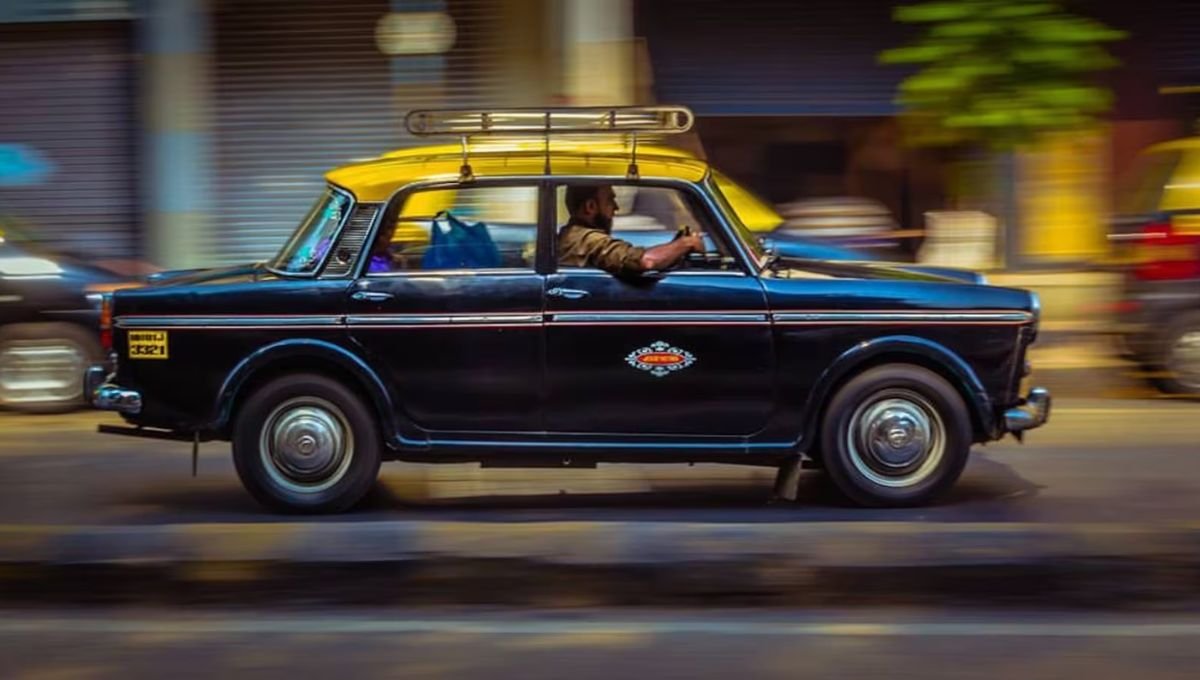Kaali-Peeli Taxis From the Streets to Memory Lane Having traveled extensively in Mumbai’s Kaali-Peeli taxis, I can attest to their intrinsic role as the heartbeat of this vibrant city. These iconic taxis have been an integral part of Mumbai’s landscape for over six decades, weaving through its bustling streets like tireless workhorses. From film stars to businessmen, every Mumbaikar has, at some point, relied on these taxis. Their yellow-black exterior was a beacon of hope on rainy days or during bustling rush hours, promising a ride to any corner of the city.
The news of their closure on October 30, 2023, comes as a shock. The memories of zipping through Mumbai’s chaotic yet charming streets in these taxis flood my mind, and the realization that they’ll no longer paint the city’s roads leaves an unexpected void in the urban tapestry. The news is a jolt to the city’s essence, and while progress is necessary, bidding farewell to these taxis feels like saying goodbye to a dear old friend.
Reasons for Shutdown
The closure of Mumbai’s iconic Kaali-Peeli taxis stems from a convergence of factors that render their operation impractical in today’s fast-evolving transportation landscape. Primarily, the taxis’ outdated nature poses significant hurdles, failing to meet contemporary safety and emission standards. These vehicles, while iconic, lack the necessary technological advancements that newer transportation options effortlessly offer.
Additionally, the surge in app-based taxi services like Uber and Ola has created fierce competition for traditional taxi operators, challenging their viability. As consumer preference pivots towards on-demand convenience and reliability, these app-based services have become the go-to choice, further diminishing the demand for the classic Kaali-Peeli taxis, ultimately contributing to their closure.
Emotional Impact on Mumbai
The impending absence of Mumbai’s cherished Kaali-Peeli taxis will leave a palpable void in the city’s soul. For Mumbaikars, these taxis weren’t just a mode of transport; they were an intrinsic part of the city’s identity. The Vibrant yellow-black cabs weren’t merely vehicles; they were repositories of countless memories and shared experiences.
Their absence will be felt, stirring emotions of nostalgia and a sense of loss. For those arriving from other cities or countries, the absence of these iconic taxis will erase an expected slice of the Mumbai experience. The first encounter with the bustling city, without the kaleidoscopic presence of the Kaali-Peeli taxis, might feel incomplete. The collective sentiment of missing these taxis, from locals to tourists, marks the end of an era and a significant shift in the city’s character.
Sign of Progress
The Closure of Mumbai’s iconic Kaali-Peeli taxis signifies a pivotal moment in the city’s progress. It’s a clear recognition of the imperative need to evolve transportation systems. Whale bidding farewell to these taxis might evoke a tinge of sadness, It’s a step towards embracing sustainability and efficiency in urban mobility. That shift paved the way for exploring innovative, eco-friendly modes of transport, aligning with the global call for greener initiatives.
The emergence of more modern, technology-driven transportation options highlights Mumbai’s adaptability to changing demands. It signals a city poised to embrace the future, one that’s not tethered to the past but dynamically responding to the evolving needs of its residents and the environment. The closure acts as a catalyst for transformation, Indicating Mumbai’s commitment to progress and adaptation.
Moving Forward
As Mumbai bids adieu to its iconic Kaali-Peeli taxis, the city stands at a crossroads, ripe with opportunities for change and adaptation. Embracing the plethora of new transportation options now available becomes paramount. From app-based services to public transit enhancements, Mumbaikars are navigating a shift towards modern, efficient travel solutions. There’s hope and anticipation for innovative developments in the city’s transport infrastructure.
The closure of the Kaali-Peeli taxis doesn’t mark an endpoint but rather a beginning, stimulating a quest for better, more sustainable models of commuting. Encouraging and exploring alternative transportation methods will be key, fostering a diverse and interconnected network that not only caters to the city;s needs but also aligns with the global push for eco-friendly and convenient mobility options. This marks a new chapter for Mumbai, one fueled by adaptability, innovation, and a commitment to a more accessible, sustainable future.
Also Read:
